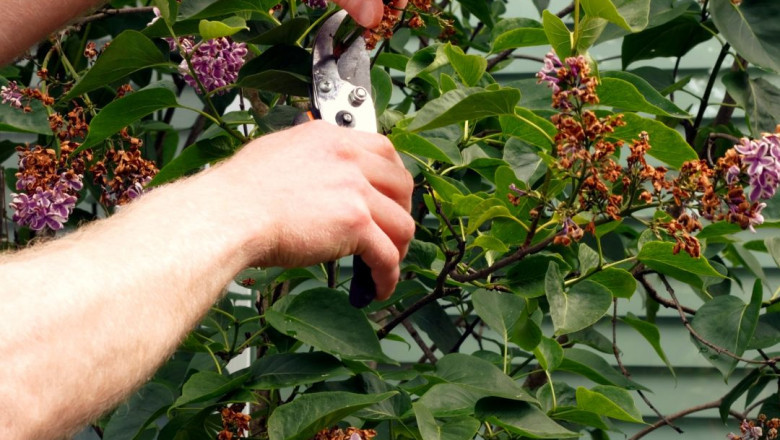views
When the colder months fade and warmer weather approaches, commercial landscapes often need revitalization. Spring cleanups play a vital role in restoring outdoor spaces after winter and preparing them for the growing season. These cleanups are not just about aesthetics—they support health, safety, and efficiency for commercial properties.
The Importance of Spring Cleanups for Commercial Properties
Restoring Landscape Health After Winter
Winter can be harsh on landscapes. Snow, ice, salt, and freezing temperatures may damage plant material, compact soil, and leave behind debris. Spring Cleanups help reset the landscape by removing what's been left behind:
-
Fallen branches and twigs
-
Accumulated leaves
-
Dead plants or winterkill
-
Litter and other debris
This clearing process promotes airflow, reduces pest habitats, and allows plants and turf to breathe and grow freely.
Preventing Safety Hazards
Commercial sites must meet certain safety standards for tenants, customers, and employees. Debris, broken branches, and uneven surfaces can become tripping hazards. Timely cleanup in the spring minimizes liability risks and keeps pathways, parking lots, and green spaces safe and accessible.
Key Tasks Included in Commercial Spring Cleanups
Debris Removal
Removing leaves, twigs, and leftover winter litter is often the first step. This prevents organic matter from suffocating turf or clogging storm drains, which is especially important for properties with high foot traffic and drainage systems.
Pruning and Trimming
Shrubs, ornamental grasses, and perennials often require corrective pruning in the spring to remove winter damage and promote healthy growth. Pruning at the right time also helps maintain shape and supports flowering.
Edging and Bed Redefinition
Over the winter, plant beds may lose their defined borders due to soil shifting and frost heave. Spring is the ideal time to re-edge beds and walkways, giving the landscape a clean, crisp appearance while keeping mulch and plants contained.
Mulching
Fresh mulch is often added during Spring Cleanups to suppress weeds, retain soil moisture, and regulate soil temperature. It also improves curb appeal with a neat and uniform finish. Proper mulching supports both function and form in commercial landscapes.
Turf Care and Fertilization
Spring is a crucial time for lawn recovery. De-thatching, aeration, and seeding may be necessary to rejuvenate worn or damaged turf. A slow-release fertilizer can also be applied to jump-start healthy growth, especially in areas with high visibility or use.
Why Timing Matters for Spring Cleanups
Completing Spring Cleanups early in the season helps avoid delays in plant development and ensures the landscape is ready for peak growing months. Additionally, early cleanups provide time for follow-up services such as irrigation checks, seasonal flower installation, and pest management.
Delaying cleanup can lead to:
-
Increased weed pressure
-
Mold or disease from decaying debris
-
Poor plant performance due to compacted or unhealthy soil
For commercial properties, these issues can affect aesthetics, tenant satisfaction, and even property value.
Long-Term Benefits of Regular Spring Cleanups
Enhanced Curb Appeal
First impressions matter. Whether it's for potential tenants, business clients, or retail customers, a neat, well-maintained exterior reflects professionalism. Clean walkways, trimmed plantings, and vibrant turf communicate that the property is cared for and well-managed.
Cost Savings Through Preventive Maintenance
Neglecting seasonal maintenance often leads to more significant problems down the road—such as extensive plant replacement, soil erosion, or pest infestations. Spring Cleanups help detect and address early signs of damage, which reduces the need for emergency repairs and costly replacements.
Improved Environmental Performance
Cleanups also improve sustainability. Removing debris prevents nutrient overload in soil and stormwater systems. Mulching and pruning encourage healthier plant growth with less reliance on synthetic inputs. These steps support a greener approach to landscape management.
Spring Cleanups are an essential part of any commercial landscape maintenance strategy. They go far beyond appearance, playing a key role in plant health, property safety, and long-term sustainability. By investing in timely and thorough spring maintenance, commercial property managers can ensure a clean, attractive, and functional outdoor environment that performs well throughout the growing season.
Maintaining a landscape is an ongoing responsibility, and starting strong in the spring lays the foundation for success all year long. A well-executed spring cleanup ensures the landscape operates at its best—visually, structurally, and environmentally.














Comments
0 comment